
Fresh breath provides confidence in everyday communication with other people. If the halitosis is suspected as first aid use chewing gums and candies with aromatic taste and smell. However in order to permanently remove the problem, it is necessary to find the cause and eliminate it and further prevent the possibility of developing the bad breath.
Causes
The intensity of smell that normally occurs in the mouth usually depend on time of day – in the morning fragrance is more intense (because less saliva is secreted at night and there are conditions for the development of anaerobic bacteria that produce foul-smelling sulfur compounds), age (odor intensity increases with age) and hunger for some people.Poor hygiene of teeth and gums, dental disease, ulcers and infections in the oral cavity, food remains behind and between teeth as food for bacteria, create an unpleasant odor. Dental procedures due to decomposition of blood coagulum or the existence of broken teeth, where food is falling apart under the influence of bacteria causes bad breath.
Dry mouth is a sign that enough saliva is not produced, which is used for moistening and cleaning of oral cavity. If there is not enough saliva, which naturally cleanses the mouth on top of tongue can be build up dead mucosal cells which falling apart creates an unpleasant odor. Dry mouth can be a result of using some medications (antidepressants, antihistamines, bronchodilators) or symptom of other diseases such as diabetes and cold.
In people who smoke tobacco smell feel for hours after smoking.
Entry of certain foods (garlic and onions, fish) and some alcoholic drinks also cause bad breath.
Body dehydration accompanied by fever, diarrhea and vomiting result in unpleasant halitosis. Respiratory diseases such as sinus infection, bronchial and lung diseases, sore throat and tonsils also can cause bad breath.
Diseases of digestive tract such as heartburn can lead to unpleasant mouth odor.
Treatment
Treatment usually begins with the use of chewing gums and candies for the breath refreshment (most include mint flavor) or chewing mint leaves. It is necessary to avoid foods with strong smells and smoking. More frequent brushing teeth and tongue cleaning (to remove dead cells and bacteria) are also recommended. Bad breath person should often rinse mouth with solutions for disinfection oral cavity (Hexoral, Hibidex) or sage tea. People who wear dentures should take special care of its hygiene - after removing at night denture should be thoroughly cleaned before its re-use in the morning.Herbal medicines that can be used for mouth rinsing are sage, mint, or St. John's Worth tea. Also cup of green or black tea refreshes breath because it contains polyphenols, which prevent the bacteria that cause halitosis.
The next level in maintaining dental hygiene includes use of interdentally brushes (for cleaning the space between the teeth) and oral showers. In the case of crooked or broken teeth, one should contact the dentist as soon as possible because these places are perfect for delaying food and bacteria development. With dry mouth, person should take more fluids and use acidic juices (squeezed lemon, orange) candies, chewing gums and other acidic foods, in order to stimulate saliva secretion.
If these hygienic-dietary measures do not produce results it is necessary to establish the cause of unpleasant breath and by its elimination solves the problem. If the cause of bad breath is not in the oral cavity it is necessary to verify the existence of hidden infection of the throat, tonsils, and sinuses with additional tests performed by the specialist.






,-Don't-Ignore-Receding-Gums_f_280x120.jpg)
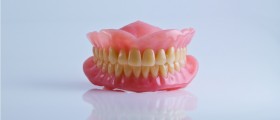
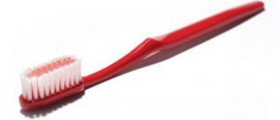
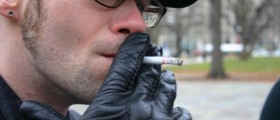
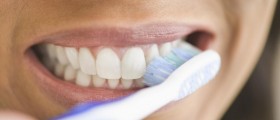
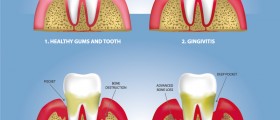


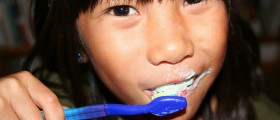
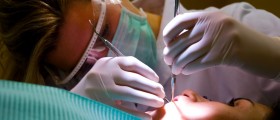

Your thoughts on this
Loading...